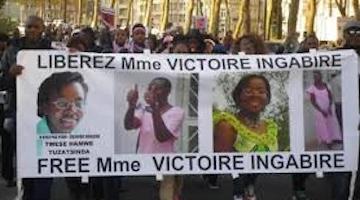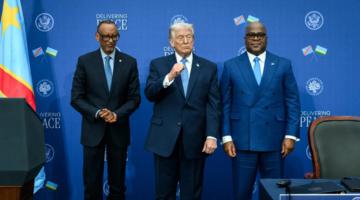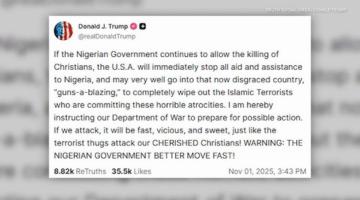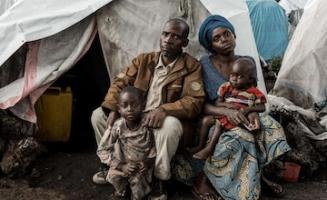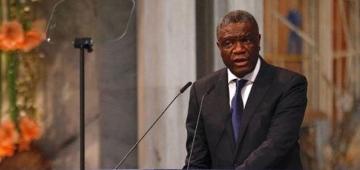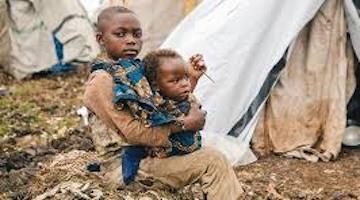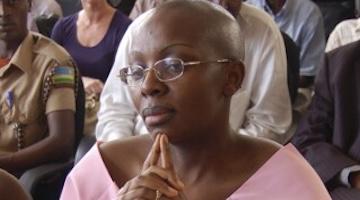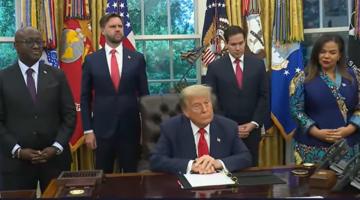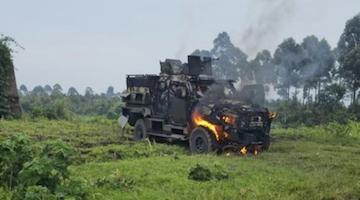Graphic illustrating Human Rights Watch's new report "Rwanda: Torture, Ill-Treatment in Detention."
Rwandan President Paul Kagame’s regime continues its lawfare against Rwandans in the Western diaspora.
In 2019, a jury in a Boston Federal Court convicted Rwandan asylum seeker Jean Leonard Teganya of fraud and perjury for lying on his application for political asylum by failing to disclose his involvement in the 1994 Rwandan Genocide. Now, after spending five years in prison, Teganya is back in federal court, this time facing deportation to stand trial in Rwanda.
The essentials of his case are like many others:
A Rwandan refugee of Hutu ethnicity is charged with genocide crime decades after the 1994 genocide in Rwanda.
Witnesses in Rwanda make accusations they’ve for some reason kept to themselves for decades.
No hard evidence is produced.
A jury convicts because the accused is a Hutu. Though they may give other reasons, the jurors believe that Hutus were the only killers in the 1994 Rwandan Genocide, that they massacred 800,000 innocent Tutsis, so this Hutu defendant must be guilty.
The accused then serves time in an American prison for immigration fraud.
Lastly, upon his release, he or she faces deportation to stand trial for genocide crime and goes to prison in Rwanda.
This was the fate of Beatrice Munyenyezi and Dr. Leopold Munyakazi. Dr. Munyakazi’s real crime in the eyes of the Rwandan government had been to give several speeches in which he said that the Rwandan massacres that took place between 1990 and 1994 were not genocide. He said instead that Rwandans are one people sharing the same language and culture and that the war and massacres grew out of a long-smoldering class conflict in which the social classes were labeled as Tutsi, Hutu, and Twa.
Rwandan refugee and longtime Ohio resident Eric Nshimiye is now in the first phase of this oft-repeated process. Rwandan witnesses have stepped forward 30 years after the genocide to accuse him, drawing pictures of the weapons they say he used to kill, but Eric’s real crime was to have testified five years earlier in defense of Teganya, his former classmate at the University of Butare Medical School. This is a common pattern that makes Rwandan refugees fearful of testifying on behalf of one another.
The simple Machiavellian tale
Western propaganda about the Rwandan Genocide has been so triumphant that a Rwandan Hutu on trial in the West faces inevitable, overwhelming jury bias. The simple, one-sided Machiavellian tale of demon Hutus executing a long-planned genocide by killing some 800,000 innocent Tutsis in 100 horrible days is all but written in stone, repeated by the Wikipedia, documentaries and docudramas, genocide studies departments, the official history at the International Criminal Tribunal for Rwanda, the UN Security Council, and even the UN General Assembly, which in 2018, voted to change the name of the “International Day of Reflection on the Genocide in Rwanda” to the “International Day of Reflection on 1994 Genocide against Tutsi in Rwanda.”
Rwanda’s UN ambassador, Valentine Rugwabiza, introduced the General Assembly resolution, and the UN’s subsequent press release read:
“. . . she said it captured the historical facts of what happened in 1994 — genocide against the Tutsi in Rwanda — and left no room for ambiguity. The tactics of genocide denial and revisionism were well known and documented. Some people promoted the theory of double genocide in the futile belief that it might divert their own responsibility. The more than 1 million people who perished in the genocide were killed in the most horrendous conditions because they belonged to a group that was dehumanized and targeted for total extermination, she asserted.”
How could anyone challenge that much institutional force?
Formidable as it is, many courageous journalists, ICTR lawyers, and scholars have. They include Judi Rever, author of In Praise of Blood: Crimes of the Rwandan Patriotic Front, Edward S. Herman and David Peterson, authors of Enduring Lies: Rwanda in the Propaganda System 20 Years On, Justin Podhur, author of America's Wars on Democracy in Rwanda and the DR Congo, Robin Philpot, author of Rwanda and the New Scramble for Africa, from Tragedy to Useful Imperial Fiction, Masako Yonekawa, author of Post-Genocide Rwandan Refugees: Why They Refuse to Return ‘Home’: Myths and Realities, Jean-Marie Ndagijimana, author of How Paul Kagame Deliberately Sacrificed the Tutsi, and the contributors to Justice Belied: The Unbalanced Scales of International Criminal Justice.
Most fundamentally, these journalists and scholars demonstrate that:
- the bloodshed took place during and after the 1990-1994 Rwandan Civil War, not simply during the infamous 100 days;
- hundreds of thousands of Rwandan Hutus died at the hands of then General Paul Kagame’s army, both in Rwanda and in the Democratic Republic of the Congo;
- there was no conspiracy to commit genocide; and
- the International Criminal Tribunal on Rwanda dispensed victor’s justice, prosecuting only Hutus.
All these books and more have been reviewed in Black Agenda Report, where we have long argued for the more complex history and against the simple Machiavellian tale. That simple tale has been weaponized not only against Rwandans and Congolese but also against Rwandans in diaspora, like Jean Leonard Teganya, and in service to the US “humanitarian intervention” complex, which argues that the US must “stop the next Rwanda,” as in Libya and Syria.
Institutional consensus about the simple tale made it impossible for Jean Leonard Teganya, like so many others, to receive a fair, unprejudiced trial in 2019. Prosecutors in these cases need say little more than, "He's a Hutu." This is racism with tragic consequence.
Now prosecutors in Teganya's deportation hearing are once again arguing that he is guilty of genocide crime and must be deported for that reason. His defense argues that he has already been punished for those allegations, which they are not going to relitigate. He would have been sentenced to between a year and 18 months for simple misrepresentations on his asylum application, but he was instead sentenced to eight years and is now being released after five for good behavior.
The central issue now, the defense argues, is whether or not he will face torture if returned to Rwanda, and the likelihood of that has been recently documented by Human Rights Watch, which on October 15, reported:
- For decades, Rwandan authorities have subjected detainees, in both official and unofficial detention facilities, to ill-treatment and torture with no accountability.
- A landmark trial of prison officials for murder, torture, and assault, concluded in April, demonstrated that it is possible to begin to break through the entrenched practice of torture.
- The government should conduct a comprehensive investigation into torture in Rwanda’s prisons, with help from the African Commission on Human and Peoples Rights and United Nations experts.
But how can the Rwandan government, which has overseen Rwanda’s prison system throughout these decades of murder, torture and assault, be free of blame or be expected to stop it? Rwanda has long expressed its disdain for the African Commission on Human and Peoples’ Rights; it withdrew from the associated court in 2016, when the court ruled favorably in the case of political prisoner Victoire Ingabire.
Human Rights Watch (HRW) is compelled to call on the government of Rwanda to end the horrors in its prisons because Rwanda is a sovereign nation that, regardless of outside pressure, can only correct its own ills from within. However, one promising court case is no reassurance that Jean Leonard Teganya and others now on trial would not face torture and possibly even death at the hands of Rwandan prison authorities.
HRW’s own report says “officials were convicted of assault and murder, but acquitted of torture.” It also says that, “Rwandan authorities routinely curtail the work of institutions with a mandate to monitor prison conditions and prevent torture. At the international level, the Rwandan government has obstructed the United Nations and other institutions from carrying out essential monitoring work in an independent manner.”
Article 3 of the 1984 UN Convention against Torture and Other Cruel, Inhuman or Degrading Treatment or Punishment decrees that “no State Party shall expel, return ("refouler") or extradite a person to another State where there are substantial grounds for believing that he would be in danger of being subjected to torture.”
In Jean Leonard Teganya’s case, there are more than substantial grounds; the grounds are in fact overwhelming.
Ann Garrison is a Black Agenda Report Contributing Editor based in the San Francisco Bay Area. In 2014, she received the Victoire Ingabire Umuhoza Democracy and Peace Prize for her reporting on conflict in the African Great Lakes region. She can be reached at ann@anngarrison.com. You can help support her work on Patreon.

